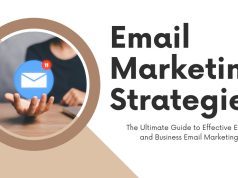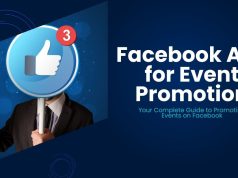Planning an event is only half the battle. The real challenge lies in getting people to show up. Whether you’re organizing a corporate conference, product launch, or community gathering, effective event marketing can make the difference between an empty venue and a packed house.
Event marketing has evolved far beyond basic email invitations and flyers. Modern audiences expect engaging, personalized experiences that start well before the event date. The most successful event organizers understand that marketing isn’t just about promotion—it’s about building anticipation, creating community, and delivering value from the very first touchpoint.
This guide presents 17 proven event marketing strategies that will help you attract your ideal audience, boost attendance, and create memorable experiences that keep people coming back for more.
Pre-Event Marketing Strategies
Create a Compelling Event Landing Page
Your event landing page serves as the central hub for all marketing efforts. Design a clean, mobile-responsive page that clearly communicates your event’s value proposition within the first few seconds of loading.
Include essential details like date, time, location, and agenda highlights. Use compelling visuals and testimonials from previous events to build credibility. Most importantly, make registration simple with a prominent call-to-action button that stands out from the rest of the page content.
Leverage Email Marketing Campaigns
Email remains one of the most effective channels for event promotion, delivering an average ROI of $42 for every dollar spent. Create a series of targeted emails that build excitement over time rather than sending a single blast.
Start with a save-the-date announcement, followed by early-bird registration offers, speaker spotlights, and countdown reminders. Segment your email list based on past attendance, interests, or demographics to deliver more personalized messaging that resonates with each group.

Partner with Industry Influencers
Collaborate with thought leaders and micro-influencers in your industry to expand your reach authentically. Choose partners whose audiences align with your target demographic and whose values match your event’s purpose.
Provide influencers with exclusive content, behind-the-scenes access, or special discount codes to share with their followers. This approach feels more genuine than traditional advertising and can significantly boost credibility and ticket sales.
Utilize Social Media Contests
Run engaging contests that encourage user-generated content while promoting your event. Ask participants to share photos, videos, or stories related to your event theme using a branded hashtag.
Offer prizes that align with your event’s value—free tickets, VIP experiences, or exclusive merchandise. Contests create organic buzz and help potential attendees visualize themselves at your event while expanding your social media reach.
Content Marketing Approaches

Start a Pre-Event Podcast Series
Launch a limited podcast series featuring your event speakers, industry experts, or behind-the-scenes content. This approach positions your event as a thought leadership platform while giving potential attendees a taste of the valuable insights they’ll gain.
Release episodes weekly leading up to the event, with each episode ending in a soft call-to-action for registration. Podcasts also create evergreen content you can repurpose for future marketing efforts.
Develop Interactive Content
Create quizzes, polls, or assessments related to your event topic to engage your audience actively. Interactive content generates higher engagement rates than static posts and provides valuable data about your audience’s interests and knowledge levels.
Use this information to refine your event programming and tailor your marketing messages. Tools like Typeform or Interact make it easy to create professional interactive content that integrates with your registration system.
Share Behind-the-Scenes Content
Pull back the curtain on your event planning process through social media stories, blog posts, or video updates. Show venue preparations, speaker rehearsals, catering tastings, or team planning sessions.
This transparency builds trust and excitement while humanizing your brand. People love feeling like insiders, and behind-the-scenes content creates an emotional connection that traditional marketing often lacks.
Host Pre-Event Webinars
Organize free webinars featuring your event speakers or related topics to provide immediate value while showcasing what attendees can expect at the main event. These sessions serve as powerful lead magnets and help establish your credibility.
End each webinar with exclusive offers for event tickets or special access for attendees. Record the sessions to use as ongoing marketing assets and email nurture content.
Digital Marketing Tactics

Implement Retargeting Campaigns
Set up Facebook and Google retargeting campaigns to re-engage people who visited your event page but didn’t register. Retargeting works best when combined with broader digital event marketing strategies that support awareness, consideration, and conversion across channels.
Create different ad sets for various stages of the buyer journey—awareness, consideration, and decision. Use dynamic ads that showcase specific event highlights or speaker lineup based on what sections of your website visitors viewed most.
Create a Hashtag Campaign
Develop a memorable, unique hashtag for your event and use it consistently across all marketing channels. Encourage speakers, sponsors, and early registrants to use the hashtag when sharing event-related content.
Monitor hashtag usage to engage with participants, repost user-generated content, and build community before the event even begins. A successful hashtag campaign can extend your event’s reach far beyond your immediate network.
Optimize for Local SEO
If your event targets a specific geographic area, optimize your marketing content for local search terms. Include location-specific keywords in your event description, blog posts, and social media content.
Register your event on local business directories, community calendars, and event listing sites. This strategy helps people discover your event when searching for activities in your area.
Launch a Referral Program
Implement a referral system that rewards current registrants for bringing friends or colleagues. Offer incentives like discounted tickets, exclusive networking sessions, or branded merchandise.
Make sharing easy by providing pre-written social media posts, email templates, and unique referral links for each participant. Word-of-mouth marketing remains one of the most trusted forms of promotion.
Community Building Strategies
Create a Pre-Event Online Community
Build a Facebook group, Slack channel, or dedicated forum where registered attendees can connect before the event. Community-driven engagement aligns closely with long-term event marketing success by increasing loyalty, reducing cancellations, and encouraging repeat attendance.
This approach increases event stickiness—people are less likely to cancel when they’ve already started building relationships with other attendees. Active communities also provide valuable feedback for improving your event programming.
Feature Attendee Spotlights
Highlight interesting attendees, their work, or their reasons for attending through your marketing channels. This user-generated content approach makes your event feel more inclusive and community-driven.
Reach out to diverse registrants and ask them to share their expertise, expectations, or excitement about the event. These authentic testimonials are more compelling than traditional marketing copy.
Host Pre-Event Networking Sessions

Organize informal meetups, coffee chats, or virtual networking sessions for early registrants. These smaller gatherings help build relationships and create anticipation for the main event.
Consider hosting sessions in multiple locations if you have attendees traveling from different areas. Local meetups can also generate additional media coverage and word-of-mouth promotion.
Creative Engagement Ideas
Launch a Countdown Campaign
Create daily countdown posts featuring different aspects of your event—speakers, agenda items, venue highlights, or networking opportunities. Use consistent visual branding to make your content easily recognizable in crowded social media feeds.
Vary your content format between photos, videos, infographics, and text posts to maintain engagement. Each countdown post should include registration information and create urgency around limited-time offers.
Develop an Event App with Gamification
Create a branded mobile app that allows attendees to access schedules, connect with other participants, and engage in pre-event activities. Include gamification elements like points for profile completion, social sharing, or content engagement.
Leaderboards and challenges build excitement while encouraging behaviors that benefit your event—like social media promotion or networking. The app becomes a valuable data collection tool and communication channel.
Create Exclusive Preview Content
Offer registered attendees exclusive access to speaker interviews, presentation previews, or industry reports related to your event theme. This premium content makes registration feel more valuable and gives people compelling reasons to attend.
Gate this content behind registration to encourage sign-ups while providing immediate value to those who have already committed. Preview content also helps set expectations and allows attendees to prepare more effectively.
Designing Interactive Event Experiences
Interactive experiences are a critical element for keeping attendees engaged, whether your event is virtual, hybrid, or in-person. As hybrid formats continue to grow, understanding the rise of hybrid events helps organizers design experiences that blend digital convenience with in-person impact.
Virtual Experiences: In online events, interactive tools can transform a standard webinar into a dynamic experience. Live polls allow attendees to voice opinions in real-time, creating a sense of participation and immediacy. Breakout sessions encourage small-group discussions, fostering meaningful networking and collaboration. Q&A sessions give attendees a chance to engage directly with speakers, which can be enhanced by upvoting questions to prioritize the most popular topics. Gamified elements like quizzes, scavenger hunts, or leaderboards add a competitive yet fun dimension that keeps energy levels high.
In-Person Experiences: Physical events benefit from hands-on engagement, too. Networking lounges, workshop stations, or product demo zones invite attendees to explore and interact with your content actively. Consider incorporating augmented reality experiences or interactive signage to provide immersive storytelling. Live feedback walls or “idea boards” encourage attendees to share thoughts and contribute to event content.
The key is to design activities that align with your event goals. By giving attendees multiple ways to participate—whether through discussion, exploration, or gamification—you create a memorable experience that not only increases satisfaction but also drives word-of-mouth promotion, repeat attendance, and social media engagement.
Creating Tiered Ticketing and VIP Experiences
Tiered ticketing is not just a pricing strategy—it’s a way to enhance the attendee journey by offering personalized levels of access and experience. Offering multiple ticket levels caters to diverse attendee needs and encourages higher engagement and revenue.
Standard Tickets: These provide access to core event sessions and basic amenities, ensuring a broad audience can participate without feeling excluded. Clearly communicate what’s included to avoid confusion.
Premium or VIP Packages: VIP attendees can enjoy exclusive perks such as front-row seating, priority check-in, meet-and-greets with speakers, backstage tours, or access to premium workshops. Early access to content or networking lounges can create a sense of exclusivity that adds value beyond the main event.
Communication and Marketing: Clearly outline the benefits of each ticket tier on your landing page, emails, and social media promotions. Highlight tangible advantages like “network with top executives,” “receive early access to presentation slides,” or “VIP-only networking dinner” to entice upgrades. Time-limited offers or limited quantities can also create urgency.
Revenue and Experience Impact: Tiered ticketing maximizes revenue while improving attendee satisfaction by matching expectations with experiences. Attendees who opt for VIP packages often share their experiences on social media, amplifying your event’s visibility and credibility.
Optimizing Event SEO for Discovery
SEO is a powerful tool to increase your event’s visibility online and attract attendees actively searching for similar experiences. Optimization should extend beyond basic local SEO to ensure your event ranks well across multiple channels.
Keyword Strategy: Identify relevant search terms your target audience is likely to use when looking for events, speakers, or industry-related topics. Optimizing for emerging behaviors such as voice queries—guided by voice search optimization best practices—can further improve discoverability.
Content Marketing: Publish supporting content like blog posts, speaker interviews, guest articles, and press releases. Each piece should link back to your main event landing page, creating a strong internal linking structure that boosts authority and relevance.
Directories and Event Listings: Submit your event to Google Events, Eventbrite, Meetup, industry-specific directories, and community calendars. Structured data markup (schema.org/Event) can help search engines display your event in rich snippets, increasing visibility in search results.
Local and Niche SEO: If your event targets a specific location, optimize content for geo-specific keywords. Highlight nearby accommodations, travel tips, or regional attractions to improve discoverability and user experience. For niche events, include industry-specific terminology and associations to attract highly relevant attendees.
By combining on-page SEO, content marketing, and strategic event listings, you ensure that your event is discoverable organically, attracting participants who are actively looking for what you’re offering. This approach not only increases registrations but also builds credibility and long-term audience awareness.
Making Your Event Marketing Unforgettable
Successful event marketing requires a multi-faceted approach that combines traditional promotion with creative engagement strategies. The key lies in understanding your audience’s preferences and meeting them where they spend their time.
Start implementing these strategies at least 8-12 weeks before your event date to allow enough time for momentum building. Track your results using analytics tools to identify which approaches work best for your specific audience and event type.
Remember that event marketing doesn’t end when doors open. Continue engaging attendees during and after the event to build lasting relationships that will make your next event marketing efforts even more effective.
Frequently Asked Questions (FAQ)
How far in advance should I start marketing my event?
Ideally, begin your event marketing 8–12 weeks prior for smaller events and up to 6 months ahead for large conferences. Early promotion builds awareness, generates excitement, and provides enough time to nurture potential attendees.
Which marketing channels are most effective for event promotion?
Email campaigns, social media, retargeting ads, content marketing, influencer partnerships, and your event landing page are all highly effective. The best approach integrates multiple channels to reach your audience wherever they engage most.
How can I increase engagement before the event?
Build a pre-event community, share behind-the-scenes content, launch contests or gamification activities, and provide exclusive previews or webinars. Engagement fosters anticipation and reduces no-show rates.
How do I measure the success of my event marketing?
Track metrics like registrations, ticket sales, email click-through rates, social media engagement, landing page traffic, attendee feedback, and post-event retention. Combining quantitative and qualitative insights gives a complete picture.
Can virtual or hybrid events generate the same excitement as in-person events?
Yes. With interactive content, virtual networking, gamified experiences, and live Q&A sessions, virtual and hybrid events can provide high engagement and reach larger audiences than in-person events alone.
What role does storytelling play in event marketing?
Storytelling creates an emotional connection and makes your event more memorable. By highlighting attendee experiences, speaker stories, and anticipated outcomes, you can increase registrations and engagement.
How can I encourage attendees to come back for future events?
Provide post-event value such as recorded sessions, resources, networking follow-ups, and community access. Collect feedback to improve future events and nurture relationships with personalized communications.









